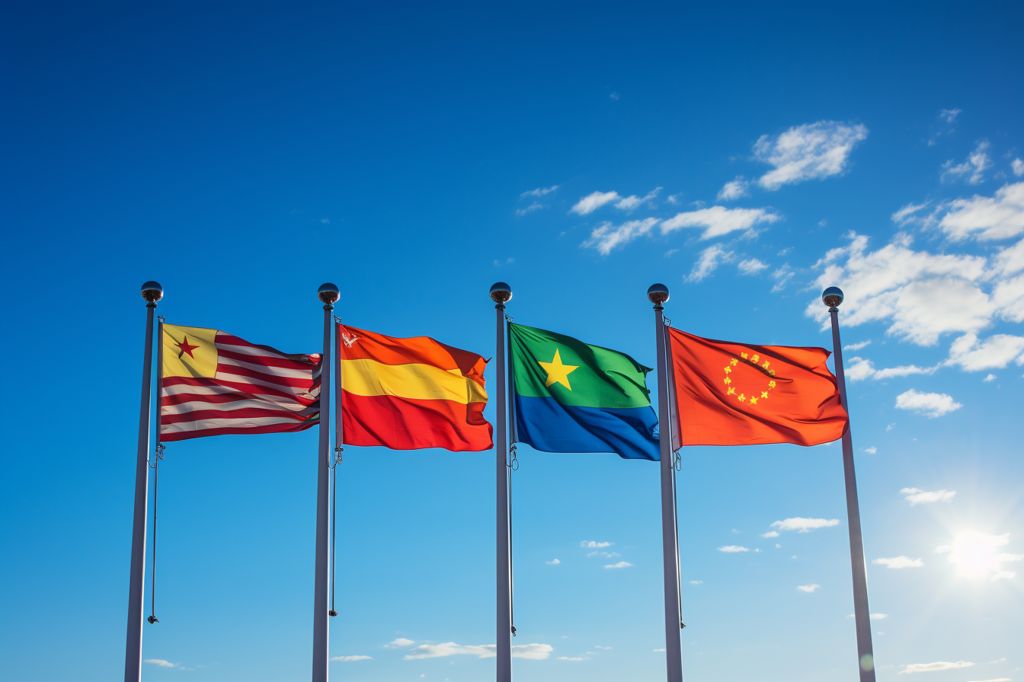The Commission for Gender Equality in South Africa is hosting investigative hearings to evaluate the progress and challenges faced by local municipalities in promoting gender transformation. This provides a platform for examining policies and initiatives taken by the municipalities to enhance gender equality. The hearings will focus on areas such as support for women-owned enterprises, programs aimed at addressing gender-based violence, and representation of women in decision-making. It is important for members of the public to engage with the process to contribute to advancing gender transformation in their communities.
Gender Equality Commission Investigates Local Municipalities
The Commission for Gender Equality (CGE), as part of its constitutional mandate, is set to host investigative hearings to evaluate the progress and challenges encountered by local municipalities in South Africa regarding gender transformation. These hearings present a crucial opportunity to examine internal policies, systems, and gender equality initiatives undertaken by the municipalities, ensuring effective gender transformation.
The hearings are scheduled for September 27-28, 2023, taking place at CGE’s Head Office Boardroom in Braamfontein. Collins Chabane and Greater Taung Local Municipalities are slated to appear on the first day, followed by Matlosana and Fetakgomo Tubatse Local Municipalities on the second day.
The importance of these hearings in promoting gender transformation is immense, as they provide a platform to showcase the achievements and shortcomings of policies, systems, and programs implemented by local municipalities. Through an in-depth analysis of the current state of affairs, the CGE can recommend necessary adjustments and changes to enhance gender equality.
Historical Context and Contemporary Progress
A brief history of gender equality movements in South Africa sets the stage for the upcoming hearings. Over the years, the nation has made significant progress in addressing gender inequalities, thanks to the relentless efforts of activists and organizations. The end of apartheid in the 1990s marked the beginning of a new era in South African politics, which saw increased representation of women in government and policymaking.
This advancement builds on the legacy of notable South African women like Olive Schreiner and Charlotte Maxeke, who played pivotal roles in advocating for women’s rights during the late 19th and early 20th centuries. Their efforts established the foundation for future generations to continue the struggle for gender equality, leading to the creation of organizations such as the CGE.
In recent years, the South African government has implemented legal frameworks, like the Employment Equity Act, to promote gender equity in the workplace. These policies have had a significant impact on advancing gender equality across various sectors. However, constant vigilance is required to ensure that progress does not stall.
Key Areas of Interest and Public Engagement
The investigative hearings will act as a critical step in identifying the areas where local municipalities excel and those where they face difficulties in promoting gender transformation. The CGE will investigate the effectiveness of current strategies and their implementation, allowing for a thorough understanding of the existing situation.
One primary area of interest for the hearings will be the role of local municipalities in offering support and resources to women-owned enterprises and organizations. This aspect of gender transformation is particularly crucial in encouraging economic independence for women, enabling them to break free from traditional gender roles and societal expectations.
Another focus will be the programs and initiatives aimed at addressing gender-based violence within local municipalities. The hearings will assess the sufficiency and effectiveness of these initiatives, as well as the support provided by municipalities to victims of such violence.
Throughout the hearings, the CGE will also evaluate the representation of women at various levels of local government and decision-making. This assessment is vital in ensuring that women’s voices and perspectives are adequately represented in policies and actions taken by municipalities.
As the hearings approach, it is essential for members of the public to engage with the process and stay informed about the proceedings. Access to information is crucial in fostering a sense of shared responsibility and collective action in addressing gender inequality. By staying informed and engaged, citizens can contribute to the ongoing conversation and play their part in advancing gender transformation in their communities.
In conclusion, the investigative hearings conducted by the CGE on gender transformation in local municipalities offer a valuable opportunity to assess the current state of gender equality in South Africa. As the country continues to build on the progress made in previous decades, such events serve as a reminder of the continuous work required to ensure that gender equality remains a top priority for all.
What is the Commission for Gender Equality?
The Commission for Gender Equality (CGE) is an independent statutory body created by the South African government to promote gender equality and protect the rights of women.
What are the investigative hearings and why are they being held?
The investigative hearings are meetings organized by the CGE to evaluate the progress and challenges encountered by local municipalities in South Africa regarding gender transformation. These hearings provide a platform for examining policies and initiatives taken by the municipalities to enhance gender equality.
What areas will the hearings focus on?
The hearings will focus on areas such as support for women-owned enterprises, programs aimed at addressing gender-based violence, and representation of women in decision-making.
When and where will the hearings take place?
The hearings are scheduled for September 27-28, 2023, and will take place at the CGE’s Head Office Boardroom in Braamfontein.
What is the historical context of gender equality movements in South Africa?
South Africa has made significant progress in addressing gender inequalities over the years, thanks to the relentless efforts of activists and organizations. The end of apartheid in the 1990s marked the beginning of a new era in South African politics, which saw increased representation of women in government and policymaking.
What are some legal frameworks implemented by the South African government to promote gender equity?
The South African government has implemented legal frameworks, like the Employment Equity Act, to promote gender equity in the workplace.
What are some key areas of interest for the investigative hearings?
The hearings will focus on the role of local municipalities in offering support and resources to women-owned enterprises and organizations, programs and initiatives aimed at addressing gender-based violence, and the representation of women at various levels of local government and decision-making.
Why is public engagement important for the investigative hearings?
Public engagement is crucial in fostering a sense of shared responsibility and collective action in addressing gender inequality. By staying informed and engaged, citizens can contribute to the ongoing conversation and play their part in advancing gender transformation in their communities.








